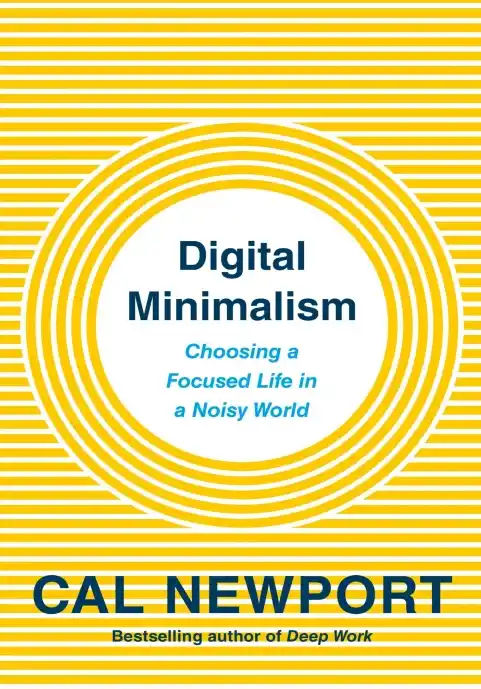
We’ve let digital tools take over our lives without questioning their value. In Digital Minimalism , Cal Newport offers a path to reclaim your attention through a 30-day declutter process. By removing distractions and focusing on what truly matters, you’ll rediscover solitude, deepen relationships, and build a life led by intention—not notifications
In Digital Minimalism: Choosing a Focused Life in a Noisy World , bestselling author and computer science professor Cal Newport presents a compelling argument for reclaiming our attention, time, and mental space from the distractions of digital technology.
Newport introduces digital minimalism as a philosophy of technology use based on intentionality: you decide what technologies to use, how, and when—instead of letting them dominate your life . Inspired by minimalist movements in lifestyle and design, this approach encourages users to keep only the tools that offer significant benefits and remove the rest.
The book begins by critiquing modern digital behaviors—especially the constant checking of social media, email, and entertainment apps—that fragment attention, reduce deep thinking, and diminish real-life relationships. Newport argues that tech companies are designed to maximize engagement , not user well-being, and that their products often exploit psychological vulnerabilities to keep us hooked.
Drawing from historical examples and behavioral science, Newport explores how past technological revolutions—from the printing press to television—also disrupted society, requiring people to rethink how they integrated new tools into daily life. He suggests we’re at a similar crossroads with digital technology today and need to develop a more deliberate strategy for managing it.
One of the most practical parts of the book is the “Digital Declutter” process , a 30-day plan to reset your relationship with technology:
Throughout the book, Newport emphasizes the importance of solitude , deep work , and face-to-face connection as essential human needs being eroded by digital overload. He critiques the myth of multitasking, explains the dangers of “any-benefit” thinking (keeping tools just because they might be useful), and offers alternative habits for a richer, more intentional life.
Digital Minimalism is especially valuable for anyone feeling overwhelmed by constant connectivity, distracted by smartphones, or concerned about how digital platforms affect mental health and productivity. It’s not anti-technology—it’s pro-intention .
Whether you’re a professional, student, parent, or simply someone who wants to regain control over your time and attention, this book provides a powerful framework for building a life where technology supports—not sabotages—your happiness.